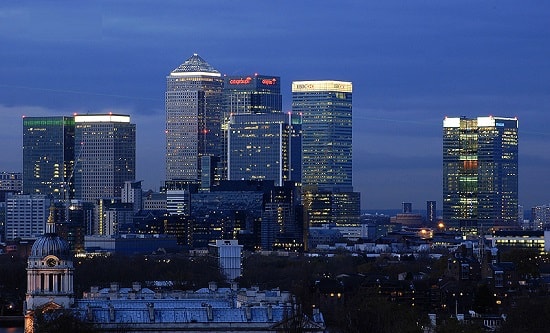
The morning after the release of Labour’s Manifesto, the Financial Times editorialised that Labour’s plans are ‘a recipe for terminal economic decline.’ The ‘tragedy’ of Corbynism, it says, ‘like so many populist movements, is that it does identify areas that genuinely need fixing – eg wages remaining below 2008 peak, public services in decline, privatised water and rail “not delivering for users”.’ Adding that in its view the Manifesto is ‘nothing more than a blueprint for socialism in one country’, the Financial Times is trailing the hostility that a Corbyn government will receive if it tries to implement its more ambitious plans such as those for nationalisation and a massive expansion in state intervention.
Corbyn, however, wants to avoid such hostility by convincing business that his plans are of benefit to it and are really nothing to worry about. On 18 November, as in every year since becoming leader of the Labour Party, Corbyn attended the annual conference of the Confederation of British Industry (CBI). There he declared it ‘complete nonsense’ that he is anti-business. It is precisely a Labour government, argued Corbyn, that will revive Britain’s economy: ‘If a Labour government is elected on 12 December, you’re going to see more investment than you ever dreamt of. You’re going to have the best-educated workforce you’ve ever hoped for. You’re going to get the world-leading infrastructure, including full-fibre broadband you’ve long demanded. You’re going to enjoy the fast, reliable transport links you’ve always wanted. You’re going to have the certainty of a customs union and access to the single market, as you’ve long advocated. You and your business have so much to gain from a Labour government.’
Red Pepper, a Labour-aligned publication, claims that ‘during an election campaign that pits socialism against barbarism, the stakes could not be higher.’ Whatever Labour’s programme is, it is not socialism. Its commitment to reassuring the ruling class that it poses no threat betrays any notion that it represents socialism. Just as the 2017 Manifesto declared that there was no fundamental divide between the working and ruling classes as ‘the creation of wealth is a collective endeavour between workers, entrepreneurs, investors and government’, where ‘each contributes and each must share fairly in the rewards’, Corbyn told the CBI that ‘it’s not anti-business to be against poverty pay. It’s not anti-business to say the largest corporations should pay their taxes just as smaller companies do. It’s not anti-business to want prosperity in every part of our country and not only the City of London.’ In Britain’s crisis-riddled economy, Corbyn will find that business disagrees. Labour may want to ‘rewrite the rules of the economy’, but the capitalist class is clear that this must not in any way undermine its property rights or its profits. Without a real movement to push for a ‘rewrite’, it will inevitably come at the expense of the working class.
Séamus Padraic
Fight Racism! Fight Imperialism! 273 December 2019/January 2020




